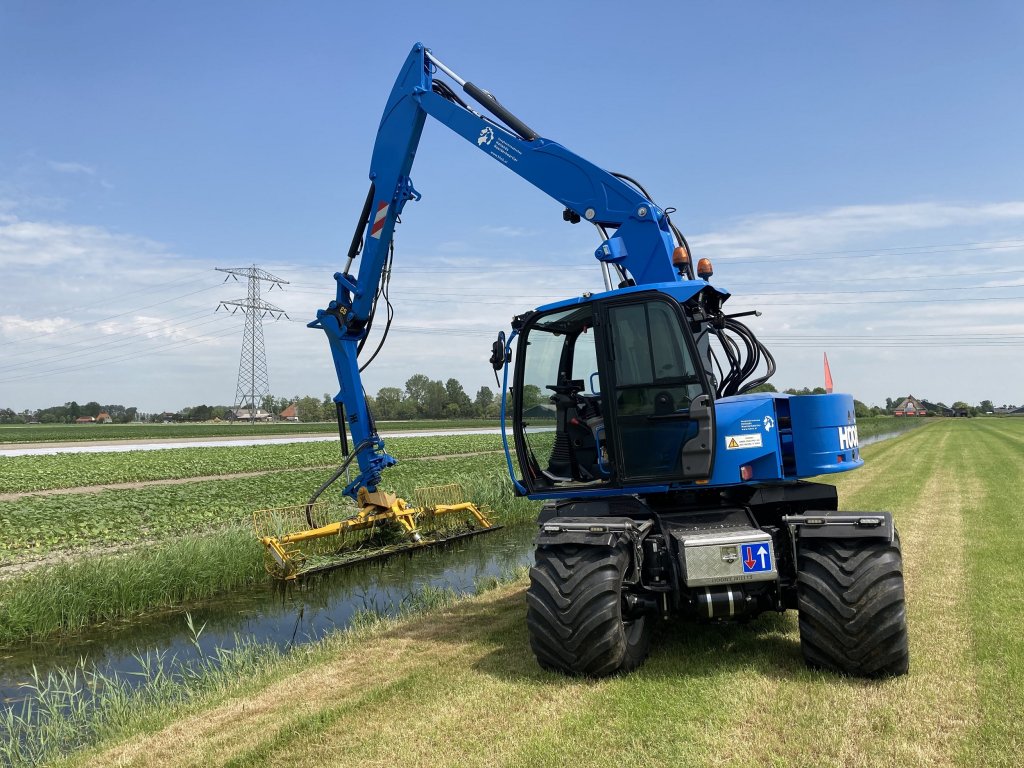Mowing of ditches and canals restarted
We will start mowing aquatic plants in about 6,000 km of ditches this week. We do this for the flow of water, to prevent flooding or water shortage. During the work we follow the code of conduct, which contains agreements and rules for maintaining ditches. In this way we take protected animal and plant species into account. Where there is enough room for flow, as many plants as possible are left standing because this is good for flora, fauna and water quality. Nowhere are the ditches mowed completely bare.
Aquatic plants are important for water quality. They hold soil, absorb light and nutrients and provide shelter for amphibians, insects and fish. In general, the more species, the better the water quality. But too many aquatic plants that take root in the soil and grow to the surface of the water can impede flow. As a result, water cannot be drained properly during wet periods, or supplied during dry periods.
Planning
From mid-June to August 1 is the first round of mowing. This leaves about 25% of the aquatic plants on one side of the ditch. Animals hide among the water plants and we want to disturb them as little as possible. In September/October is the second round of mowing. Then we mow the other side of the ditch only at the locations where it is necessary for the flow. Because Hollands Noorderkwartier is a large area, it is difficult to say in advance where the contractors are working. A tip for individuals with a pump in the ditch is to remove it from the water or mark it with a pole so the driver can take this into account.
Protection of nature
As of April 1, 2025, there is a new Code of Conduct on Best Practice in Management and Maintenance for Water Boards. This contains agreements and rules for managing and maintaining ditches, dikes, pumping stations and maintenance paths. Employees and contractors working for the Water Board must comply with it. Leaving vegetation in place throughout the year is a new measure. All kinds of animals and insects benefit from this. Think of breeding birds, amphibians and dragonflies that live in and around the water. In this way we ensure healthy ditches and protect nature during this necessary work.
Fish-friendly mowing
We give fish as much opportunity as possible to escape. The boat's mowing basket has extra wide meshes. If the water is too warm, we do not mow because this quickly deprives the fish of oxygen. Fish may gasp for oxygen or become temporarily paralyzed. Usually the fish recover and swim away. Do you still see (dead) fish at the water surface after mowing? Call the Water Board on tel. 072 582 8282. We will go to the location to investigate the situation and clean up any dead fish.
